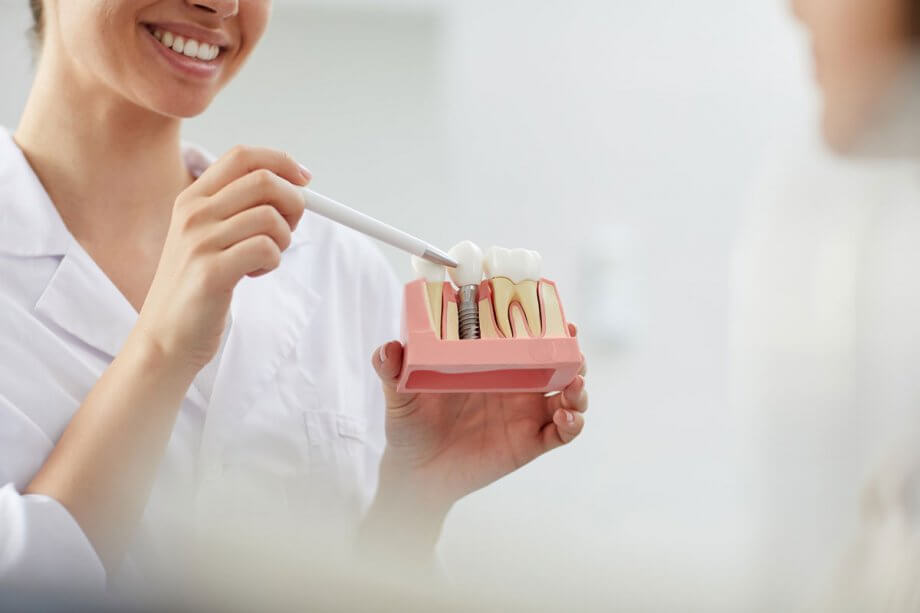More and more patients are coming to our office asking about mini dental implants and it’s easy to understand why. Mini-implants can be completed in a day, with a less invasive procedure, and no bone grafting is required. Why would anyone get regular dental implants when mini dental implants are so much easier? Well, as with most things in life, there are pros and cons—and the cons mean that mini dental implants aren’t for everyone. Here’s what you need to know about mini-implants vs. full-size dental implants.
What are mini-implants?
As you’ve probably figured out from the name, mini dental implants are smaller than traditional implants—1.8mm to 3.3mm in diameter compared to 3.4mm to 7mm in width. Instead of requiring an implant, abutment, and crown (or other restoration), a mini-implant only involves an implant post and a crown. Mini-implants are also less expensive than traditional dental implants.
The procedure for getting mini-implants is simpler too. They’re placed in a single appointment under local anesthesia. The surgery takes about two hours and there are no sutures needed, nor any supplemental procedures like bone grafts or sinus lifts. Your implant crowns will be placed on your mini-implants immediately after your surgery, which means you won’t need to wear a temporary restoration while waiting to get a permanent one.
What are the benefits of mini-implants?
Mini dental implants are an exciting innovation in the field of implant dentistry and they have many benefits over traditional implants. These include:
- Making dental implants attainable for patients who are not candidates for traditional implant surgery
- Cost
- Surgery is less invasive
- Same-day results
- Easier recovery and less pain
- Eliminating need for sinus lifts and bone grafts
- Fewer complications
When compared to traditional dental implants, mini-implants perform just as well when it comes to preventing and reversing bone loss in the jaw.
What are the downsides of mini-implants?
With so many benefits, it may seem like mini-implants are the way to go, but there are some significant disadvantages that you’ll need to consider:
- Mini dental implants haven’t been around as long as traditional dental implants, so there’s not the same level of scientific research and studies on treatment outcomes
- Mini-implants cannot be used in areas with little vertical bone
- More mini-implants are required to support bridges and dentures
- Because mini-implants have only two pieces instead of three, if they become damaged, the entire restoration must be removed
- Mini-Implants are not always an option for replacing upper teeth
Are mini-implants right for you?
Traditional dental implants are usually our preferred option, but there are some cases in which we might recommend mini dental implants instead. Patients who can’t tolerate traditional dental implant surgery may be candidates for less-invasive mini-implant placement. They’re also well-suited for patients who have small teeth, need a restoration in a narrow space, or are missing their front teeth. We also turn to mini-implants for patients who have experienced bone loss but are not interested in pursuing a bone grafting procedure.
Learn More About Mini Dental Implants
To learn more about mini-implants vs. full-size dental implants, contact us today at 505-821-2111 to schedule a consultation with Dr. Steel at Rio Grande Oral Surgery and Dental Implant Center.

